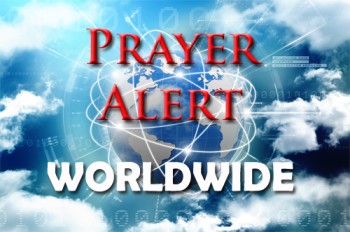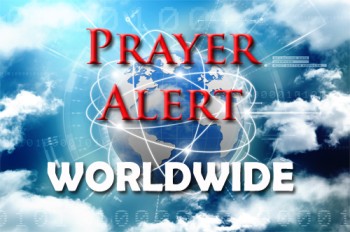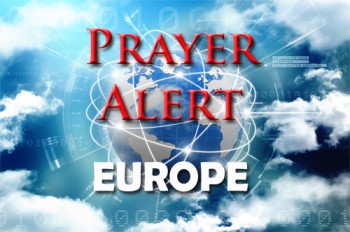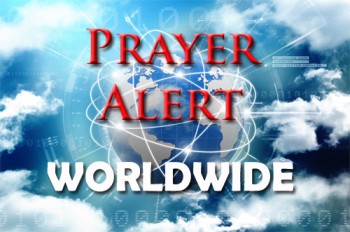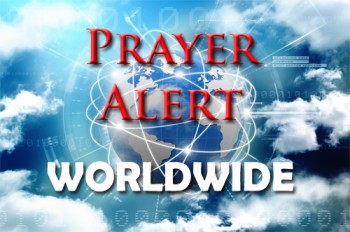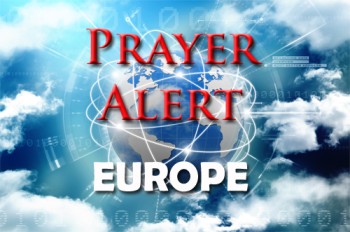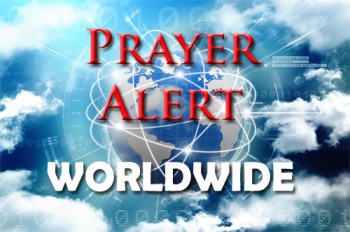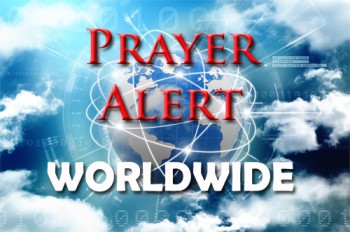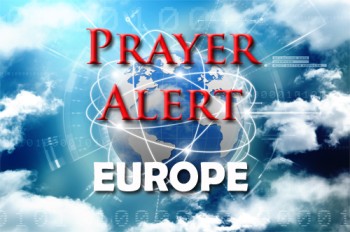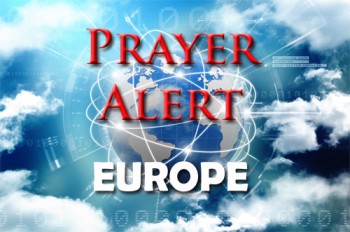Displaying items by tag: Corruption
Nepal: violent protests against corruption and ban on social media
Nepal has been rocked by its most intense unrest in decades, with corruption and nepotism at the heart of nationwide protests. The turmoil escalated dramatically after the government’s controversial ban on social media platforms triggered widespread anger, amplified by resentment over politicians’ wealth and privileges. Though Gen Z activists initially led peaceful demonstrations, they turned violent, leaving at least 29 people dead and parliament, government buildings, and private homes torched. The protesters insist that infiltrators hijacked their movement, a claim supported by the army. While regretting the violence, some are cautiously optimistic that the movement might spark reforms. The army has deployed across Kathmandu, enforcing curfews, manning checkpoints, and inviting protest leaders to talks, while some young people began cleaning debris to show their hope for change. Whether the movement will lead to accountability and new leadership, or simply further instability, remains to be seen.
Philippines: Marcos an unlikely anti-corruption crusader
The Philippines once again finds itself grappling with the enduring scourge of corruption, an issue that has haunted the last three presidents: Ferdinand Marcos Sr, Benigno ‘Noynoy’ Aquino III, and now Ferdinand Marcos Jr. He is now trying to assume the mantle of anti-corruption reform, despite his own family name being historically associated with cronyism and ill-gotten wealth. Unlike Aquino, who launched his integrity drive at the height of his popularity, Marcos Jr faces diminishing political capital, factional rifts within congress, and a resurgent Duterte camp weaponising public anger. The stakes are high: scandals such as the multibillion-peso flood control controversy threaten to erode governance credibility at a time when systemic accountability is urgently needed. The president must move beyond rhetoric, pursuing transparency and reform even within his own circles. Without decisive action, the Philippines risks sliding into deeper political instability, echoing past failures to tackle entrenched corruption and injustice.
Greece: prime minister blocks full investigation into huge fraud scandal
A major scandal has erupted in Greece, with European prosecutors accusing senior government officials, including ministers and MPs, of orchestrating a large-scale scheme to defraud the EU of agricultural subsidies. It is claimed that individuals illegally claimed payments for non-existent or unusable pastureland, depriving legitimate farmers of support. However, those who have been accused are likely to evade justice because, despite widespread criticism, Prime Minister Kyriakos Mitsotakis is blocking a full-scale investigation, using legal loopholes and his party's parliamentary majority. A 3,000-page dossier has implicated former agriculture ministers and top officials in a coordinated effort to bypass controls, intimidate investigators, and ensure fraudulent payments were processed. Despite internal warnings and blocked payments, whistleblowers were forced out, and payments resumed under political pressure. Even though the extent of damages has not yet been assessed, Brussels has ordered Greece to forfeit nearly €400 in funding, over a fifth of the direct payments it had been due to receive next year. The case offers damning evidence that after three bailouts and a financial crisis that lasted over a decade, Greece still hasn’t cleared out the rot.
Argentina: supreme court upholds prison sentence for former president
Argentina’s supreme court has upheld a six-year prison sentence for former president Cristina Fernández de Kirchner on corruption charges, barring her permanently from public office. The ruling sparked protests in Buenos Aires, where her supporters accused the court of serving the nation’s economic elite. Fernández de Kirchner, who led Argentina from 2007 to 2015, was convicted in 2022 of directing irregular public works contracts to an ally. She denounced the decision as politically motivated and appealed, but the court stated that it was ‘based on the abundance of evidence produced’, and said that her conviction did nothing more than protect Argentina’s democratic system. President Javier Milei, her fierce political rival, welcomed the verdict. The decision seems to mark the end of a significant chapter in Argentine politics, just days after Kirchner had launched a campaign for the Buenos Aires legislative elections in September. She has five days to turn herself in to the authorities, but her lawyer has requested house arrest due to her age (she is 72).
Peru: another former president found guilty of corruption
Former president Ollanta Humala and his wife, Nadine Heredia, have been sentenced to fifteen years in prison for laundering $3 million from Brazilian firm Odebrecht and $200,000 from Venezuela’s former president Hugo Chavez. Humala, who served from 2011 to 2016, was taken into custody immediately after the verdict. Heredia sought asylum at the Brazilian embassy and was granted safe passage to Brazil with her youngest son. The trial, which spanned three years, centred on illegal funding for Humala’s 2011 campaign. Prosecutors allege the funds were funnelled through his Nationalist Party to defeat rival Keiko Fujimori. He is expected to serve his sentence at a facility built for former presidents; Alejandro Toledo and Pedro Castillo are also detained there. Former president Alan Garcia killed himself in 2019 as police arrived at his home to arrest him for alleged corruption. Odebrecht has admitted to paying $788 million in bribes worldwide to secure government contracts.
North Macedonia: protests after 59 die in nightclub fire
North Macedonia is in mourning after a devastating nightclub fire in Kočani killed 59 people, most of them young. As grief turns to anger, thousands have taken to the streets demanding justice and an end to corruption. The nightclub, Pulse, was found to have been operating illegally with an invalid licence obtained through bribery. Safety violations, including a lack of fire exits, an inflammable ceiling, and no fire alarm, contributed to the disaster; there might have been 1,500 in the venue, which had an official capacity of 250. Many victims perished in the crush as they tried to escape. Authorities have detained twenty individuals, including a former economy minister and state officials. The government has declared seven days of mourning, while protests continue across the country, pressuring officials to address corruption. Prime minister Hristijan Mickoski vowed swift justice, calling the situation ‘shocking’. Continuing protests are putting further pressure on the government to stop the corruption which has now cost the 1.8-million strong nation so many young lives.
Mozambique: crucial election
On 9 October, 17 million Mozambicans voted for a new president who many hope will bring peace to the oil- and gas-rich Cabo Delgado province, which has faced a jihadist insurgency since 2017. Over 1.3 million people have been displaced due to violence, with 600,000 returning to destroyed homes. The presidential candidates, including Frelimo’s Daniel Chapo, Lutero Simango of the Democratic Movement, and independent Venacio Mondlane, have promised to prioritise peace and rebuilding. Chapo has pledged to end terrorism and rebuild infrastructure, while Simango has focussed on addressing unemployment, poverty, and healthcare. Mondlane has promised to eradicate terrorism within a year. Frelimo is expected to win again, despite wide-ranging allegations of electoral fraud in last year’s local elections;it also has been tainted by corruption scandals, with politicians jailed for taking payoffs to favour government-controlled fishing companies. The country is also facing severe food shortages as a result of a long drought: the UN says that 1.3 million people are affected.
Kenya: IMF invited to audit corruption and governance issues
Kenya has officially requested the International Monetary Fund (IMF) to conduct a comprehensive review of its corruption and governance challenges. Cabinet secretary Musalia Mudavadi said that this will help the government address corruption, a persistent issue negatively impacting the economy and the livelihoods of Kenyans. President William Ruto, who has been facing pressure from widespread protests over high living costs, pledged in July to amend laws aimed at closing loopholes which enable corruption. He wants to focus on holding corrupt officials accountable, reducing government wastage, and curbing opulence among leaders. The IMF's review, which will encompass all government ministries and institutions, aligns with its previous calls for Kenya to address these challenges. Kenya hopes this effort will also secure delayed financial assistance from the IMF, crucial for its 2024/2025 budget.
Ukraine winning its other battle - against corruption
Since gaining independence in 1991, Ukraine has struggled with endemic corruption, a battle seen as crucial for its war against Russia. Transparency International now ranks it 104th out of 180 countries, its highest position since 2006. Recent developments have been the arrests of supreme court head Vsevolod Knyazev, agriculture minister Mykola Solsky, and SBU officer Artem Shylo, though all deny wrongdoing and are out on bail. A pivotal development was the 2015 launch of Prozorro, a digital platform which reduced corruption in government procurement, saving nearly $6 billion in four years. With substantial Western aid flowing in, ensuring proper control is critical. Corruption has not only drained resources but also hindered foreign aid and military recruitment (many Ukrainians have bribed their way out of the country to avoid conscription). Last year, Volodymyr Zelensky dismissed regional conscription officials amid bribery scandals.
Russia: minister arrested on charges of taking bribes
A deputy defence minister, Timur Ivanov, has been detained in Moscow, accused of accepting large-scale bribes. Ivanov, who denies the charges, has been overseeing military infrastructure projects since his appointment in 2016. There have been few such high-profile cases since the invasion of Ukraine. Ivanov, an ally of defence minister Sergei Shoigu, faces serious charges. Reports link him to profiting from construction schemes in occupied Ukrainian territories, particularly in Mariupol. A court has remanded him and a friend, Sergei Borodin, for two months. His detention signifies a significant move against Russia's elite, who are often accused of using their positions to amass vast fortunes. It may also impact Shoigu's standing, as Ivanov (described by the USA and UK as ‘tenth in the overall hierarchy of the Russian military leadership’) is seen as his close associate.

